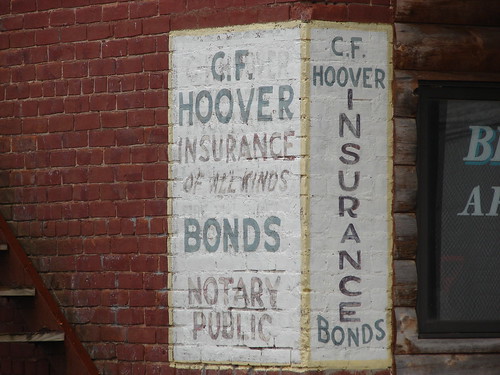
Image : http://www.flickr.com
In particular, the College has completed? Then you can save a lot of what we know about major and minor, but what do you know about money management? Some ABC two very important areas of money management, housing and taxes. And 'better a student constant in the main M-0-Ney.
Buying a home
Buying a house can build equity. Instead of money the owner can pay. You can also add in your monthly payment for 1520 years and not be concerned about the rising costs of rent. But make sure the unit cost.
- You should be able to make 3 times your annual income, not more.
- Monthly payments, including taxes, mortgage interest, insurance, maintenance and home runs from.75% to 1.15% of the purchase price of a.
- Pull Considering up to 20% down. This lowers the interest rate and your monthly payments.
- If you can afford it, get a short-term financing. This saves oninterest costs, which make the original purchase price much higher. You can also obtain a mortgage of 30 years at an interest rate lower, but pay the loan every two weeks instead of every month in power, so that the loan is a loan of 15 years.
- Take time to find out whether you really save by buying or renting, if more convenient.
How to think the purchase:
to - buy bigger, not smaller, if you are willing to leave part of your house. It would be better to buy now and not wait and losefavorite now a buyer's market. Renting a room or buying a duplex, you can offset the costs of the loan and if you have more income heavily, stop renting and enjoy.
- However, smaller is cheaper. If you buy something, make 20% less than you, you can save even more on mobile objects, such as utilities, insurance, e.
- Remember that buying at high prices in a neighborhood affect can be a good price but also other costs. Be friendly to higher prices,persuaded to buy nice cars, and you must keep your home in a similar way as your neighbor. Perhaps the real deal is with a house in a neighborhood an affordable price.
- Think appreciation. more expensive neighborhoods have appreciated and respected its limitations. However, property values and taxes for homes in neighborhoods steep price to move lower, with improvements especially at home, as the younger
- Purchasing property on the market in December made, not inhis summer, you will be able to get a better offer.
- Foreclosures can be a good way to enter a house for less. Just make sure that the foreclosure list price significantly lower than surrounding home values and that is the cost to fix damage in the house do not exceed the savings.
About negotiating a price:
- Pre-qualify for a home loan. This saves time and makes it easier for you to negotiate.
- Remember, not the seller, if thePrice.
- Negotiate a price to see what other homes in the area are selling for now, not what it sold for.
- Take the time was at home on the market as a lever.
- To examine issues of maintenance and deduct the cost from the house sale price should be fixed.
- Nit-Pick. If you're a dirty air filter on the AC or loose a step, which can cause problems with the house, which in turn may indicate affect their value.
- Do not tell your real estate agenthow high you go. She / he will push this price and beyond. Better to keep the figure for themselves.
- Contact the applicant for a home you want to buy directly and ask him or her to a commission of 3%. Although the Commission is of the usual 6%, the candidate for half of the Commission of any agent working for you.
t deal - Don 'with mortgage brokers. You can get a bigger loan, but pay their taxes, end up with a more expensive house than youcould afford, and interest rates are perhaps less-than-desirable. Go to the bank.
- Write a time limit clause in your contract purchaser. You do not want to wait for a seller and lose a good interest rate in for a limited period.
Tax money saving tips
Take Decductions:
- As a new grad, there are some tax benefits of education. student loan interest deduction if you itemize.
- Donate your old collegeClothing, you can deduct the value of wholesale market. Even donating your old computer or car at the end of year of significant further reductions.
- Why educate yourself about money, world, knows the costs of managing money can be deducted if taken more than 2% of gross income (AGI), the recall is less in your early work. You can also deduct the cost of tax preparation, investment, magazine subscriptions, fees and securityBrokerage fees.
- Medical expenses can be deducted if they exceed 7.5% of your AGI. These costs can stop many things I could not think of weight loss programs, glasses, a class with smoking, including acupuncture and chiropractic, braces. See IRS Publication 502 for a complete list.
- Cash advance loans student loans or other loans in December. You can take the deduction for the current year.
- Yes, job search expenses are deductible even if you do not get a job. It can be inferredResume preparation, travel costs to interviews, and the cost of counseling.
Here are some tips for saving on your taxes for the preparation:
- E-filing is a good idea. You can get a refund back in two weeks, and make your money work for you.
- Use a software to create your tax returns and electronic filing on the Internet. Many attractions are free such as Turbo Tax, you can use your software without purchasing it.
- If your AGI is less than $ 50,000, you can charge taxesPreparing for the IRS government website. Some states also offer free tax preparation. Check online for a list of states that offer this service.
- Be careful in calculating the withholding on your W-4 Forms. The average refund is $ 2,000, amounting to $ 160 per month. If this money in your pocket, it could yield. Not too much withheld as a savings plan. You should save for their own account and earn interest.
There are other taxes to saveStrategies:
- To contribute to traditional IRAs every year to reduce the tax debt and save for the future.
- Save the sales tax by buying online or through the purchase of large items like cars in the States not sales tax (Montana, New Hampshire, Oregon, Alaska and Delaware), also While some residents of states, or the application for sale.
- Here comes Full Circle - even a house, attracting interest. You are building equity and get a tax reduction.
Put aRoof over their head and make sure that paying taxes is a duty. I hope this tutorial is useful for you as a student was the New College.
Visit : Student Loan game Auto insurance price quote
























